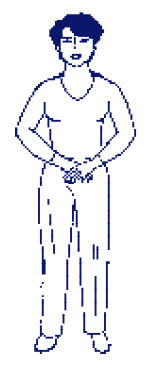by Kate Britton
Qi Magazine - Issue 90
Simply going outside every day to go through our forms is not necessarily going to have a marked impact on our skill level. There is training and there is training.
Practice makes perfect, as the saying goes, but I am not entirely convinced that we can ever reach perfection. That would imply that there comes a point when, no matter how much more we practise, we just cannot get any better. I do not think that can be true. I believe that if we continue to train, we will always keep improving.
There are three basic ways in which we can practise all the skills we have learned. The first I call ‘Maintenance’. This is when we simply run through the forms that we know so that we do not forget the sequences. This is necessary to some extent, especially when we are short on time. When we are learning a new form, for example, we concentrate a lot of our time on that one, which means that we have less to spend on everything else we know. We may, then, have to just run through some of our forms quickly to keep them fresh in our mind. Because, as an instructor, I know quite a few forms and it is impossible to practise them all every day, or even every two or three days. But I like to make sure that I practise everything I know at least once a week. If I leave something for two or three weeks, the detail starts to disappear, and the form begins to become blurry. If I leave it longer than that, whole sequences begin to get lost.
The second way we can train is to practise for ‘Health’. This is extremely important, since the main reason we learn skills such as Qigong, Taijiquan and Chun Yuen Quan is so that we become healthier, stronger and more flexible. But when training for health, both our mind and our body must be relaxed. This means that we cannot be thinking too much about each move and how we might make it better. In fact, we need to empty our mind and let the movements heal our bodies.
However, if we only practise for health, and our movements are never checked, eventually your forms may become sloppy and lose definition. Finally, we need to practise for ‘Improvement’. When we do this we look at each move in detail to see how we can make our performance better. We can go over and over a short section of form to see if we can improve our posture and the framing. Practising to improve your skill is extremely important if you are an instructor. Once you start teaching you have to start running to stay ahead of your students. Just as you want to see them improve, they want to see you gaining more skill so that as the years pass you still have a lot to share with them.
So a combination of all three methods of training is necessary if we want to continue developing.
When people first join a class, there are usually some who do not practise at all between lessons, which seems a bit of a wasted opportunity to me. We are given a very valuable gift that will help us stay healthy and mobile into old age. Of course, if you do not practise from one week to the next, then you will have difficulty remembering what you learned the previous week. Repeatedly going backwards each time you attend class is demoralizing, especially when those who started at the same time begin to move ahead, leaving you behind. You will probably very quickly give up. But with a little effort in your spare time, even just for ten minutes a day, you can start moving forwards each week, and begin to reap the rewards to be had from these fascinating arts.



